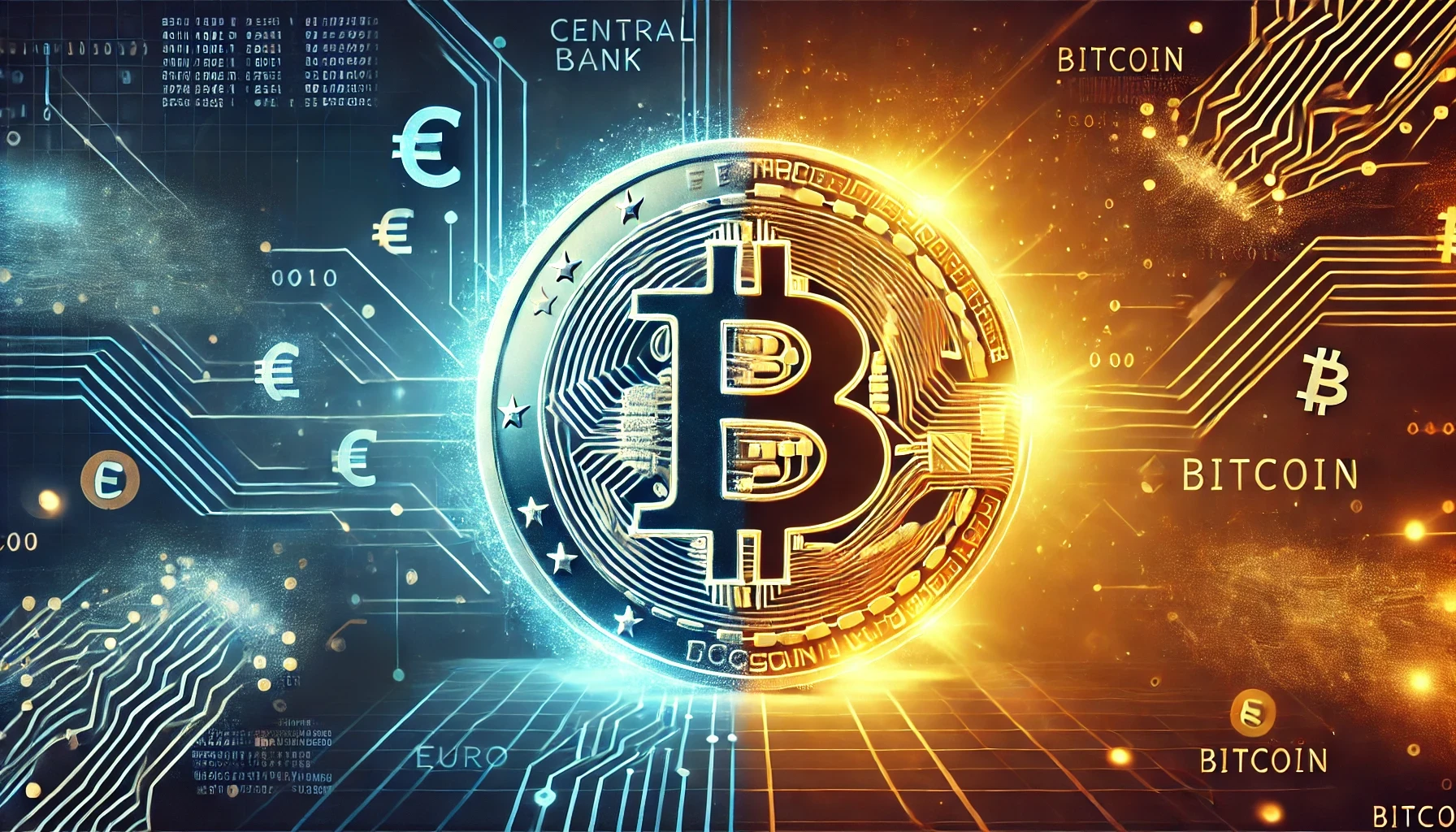The Digital Euro and Bitcoin – Freedom or Control?
2025-03-21
It’s now becoming reality. The European Central Bank (ECB) has set a deadline to launch the digital euro in October 2025. Christine Lagarde and the ECB claim this is a natural development of our financial system - a way to future-proof the euro in an increasingly digital world. But what does it actually mean - and why are many people skeptical?

What is a digital euro and why is it being introduced?
Most of us already handle digital money daily – we use Swish, pay by card, and see numbers in our bank accounts. But what separates a central bank-issued digital currency (CBDC) from today’s bank money is that it is issued directly by the ECB and not by private banks.
ECB’s arguments for the digital euro
Reduced banking risk: Citizens can hold money directly with the ECB, which may be considered safer during financial crises.
Preserved state control: As cryptocurrencies grow, central banks want to maintain control over monetary policy.
More efficient payment systems: Digital euro payments could become faster and “more secure” than today’s systems.
Reduced dependence on cash: Cash usage is declining in Europe, and a digital euro could take its place.
Disadvantages of the digital euro
What some see as an improvement, others perceive as a tool for increased surveillance and control. A CBDC could allow the state to:
Track every transaction: Full insight into how citizens spend their money.
Program money: Restrict what the money can be used for, e.g., not allow it for “undesirable” purchases.
Introduce negative interest rates: To force consumption, money in digital accounts could lose value over time.
Freeze assets: The state could quickly block individuals’ financial resources.
A real example: A citizen in an authoritarian state protests against the government. With a digital euro, their account could be frozen in an instant – regardless of whether they broke any laws. Or on a less dramatic level: If the government wants to reduce meat consumption for the sake of the climate, you may only be allowed to buy a certain amount of beef per month. Is this the kind of financial system we want?
Bitcoin – a free and decentralized alternative
Bitcoin stands in sharp contrast to the digital euro. Where the ECB seeks increased control, Bitcoin offers freedom.
You own your money: No one can freeze your bitcoin or take your assets from you.
Censorship-free system: You can send and receive bitcoin without government approval.
Limited money supply: Bitcoin is programmed with a maximum limit of 21 million, which protects against inflation.
Borderless economy: Bitcoin can be used globally, without intermediaries, banks, or border controls.
What kind of future do we want?
Many feel safe with increased government centralization, while others see individual financial privacy being restricted. For some, it’s a tool against crime; for others, a limitation of personal freedom. But the question remains: Do we want our money to be a state-controlled tool – or a free and decentralized system?
The ECB’s digital euro is coming soon – but Bitcoin offers a different path.
Ready to start your Bitcoin journey?
BTCX is Sweden's first Bitcoin exchange. With us, you can buy bitcoin quickly and securely. Experience safety and simplicity when investing in the currency of the future!


